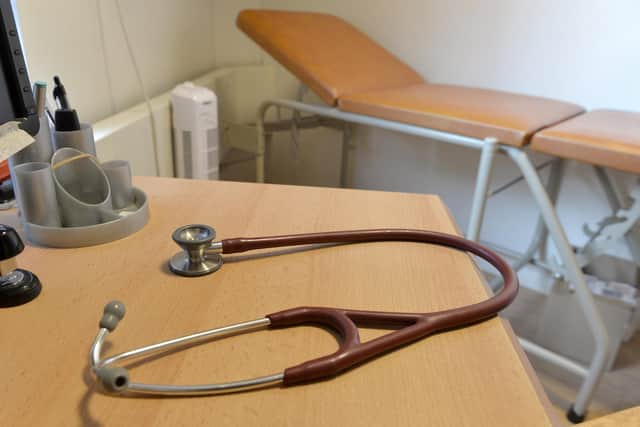'Ineffective telephone systems' blamed as people in Leeds struggle to get GP appointments
and live on Freeview channel 276
The Care Quality Commission (CQC) said improvements are needed in healthcare systems across Leeds and West Yorkshire, with difficulties discharging patients from hospitals into care homes also said to be a problem.
It follows a number of co-ordinated inspections earlier this year by the CQC of the West Yorkshire Integrated Care System.


Advertisement
Hide AdAdvertisement
Hide AdThe review across the West Yorkshire integrated care system, in which the CQC inspected 999 and NHS 111 services run by the Yorkshire Ambulance Service NHS Trust, as well as urgent and emergency care run by The Mid Yorkshire Hospitals NHS Trust and Bradford Teaching Hospitals NHS Foundation Trust.
It stated some patients reported “difficulties with providing and accessing telephone appointments in GP practices”, and that some of the issues were due to ineffective telephone systems “which were being looked at to try and resolve the issues".
While there was some improvement in ambulance response times and handover delays, inspectors said performances “remained below target”.
The CQC stated: “Staff working in some social care services reported significant challenges in relation to hospital discharge processes, this included a lack of information to support their transfer of care and we were told of examples when this resulted in people having to return to hospital.
Advertisement
Hide AdAdvertisement
Hide Ad"Local stakeholders had a good understanding of this problem and were looking to improve pathways and discharge planning.”
Staffing and capacity issues in both care homes and domiciliary social care services have sometimes impacted on timely and safe discharge from hospital.
This follows claims made by senior Leeds City Council officers back in January, who said there were around 293 people in Leeds hospitals with “no reason to reside”, due to problems discharging them.
The CQC report added: “There were inconsistencies with triage processes in primary care which could result in people being inappropriately signposted to urgent and emergency care services. However, a number of staff working in social care services reported good engagement with local GPs.”
Advertisement
Hide AdAdvertisement
Hide AdAnn Ford, CQC’s director of operations network, said: “During the urgent and emergency care inspections across West Yorkshire, staff were working hard under sustained pressure.
"It was reassuring that leaders were working together to support their workforce and to identify opportunities where improvements could be made, however people continued to experience delays in accessing care and treatment.
“Some [services] had long delays, while others performed relatively well. In services struggling to meet demand, patient flow was an issue. This was mainly caused by delays in discharge, due to people being unable to access community or social care services which must be addressed as a matter of priority.
“The NHS 111 service was experiencing significant staffing challenges and were in the process of recruiting new staff. Also, this service had experienced an increase in demand, particularly from people trying to access dental treatment, although a system was in place to manage the need for dental advice and assessment.
Advertisement
Hide AdAdvertisement
Hide Ad“Across West Yorkshire, it’s important that service leaders continue to work together to improve patient pathways across urgent and emergency care, to alleviate pressure on other services and ensure people receive the best possible care.”
The full set of reports will be published on the CQC website.
